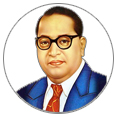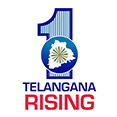1. About the Department
Physics is one of the most important parts of the science as it deals with the principles of matter, force, energy, and motion. Physics is one of the important departments in Dr.B.R.Ambedkar Open University. Since the inception of the University the science programmes are offered through Open and Distance Learning(ODL). The department of Physics offers variety of programmes as Core courses and specialized courses at Undegraduate and Post graduate programmes. Tomeet the true spirit of the Visioin and Mission of the University, the department has drafted the syllabus along with the academic expert group to meet the demand of the diverse section of the society
2. Under Graduate level
The University offered Physics subject as one of the main subjects at Undegraduate level since 1983.. The course Physics is one of the course in B.SC programme. Initially the programme was offered as annual programme. But since 2017, the B.Sc programme is offering in CBCS patter in both Telugu and English media.
3. Post Graduation level
The University has introduced Post graduation programmes fro2006. The department of Physics introduced M.Sc Physics programme from the academic year 2007-2008. Initially the programme was started in 5 study centres where the Conventional university are offering the seame programme. This is because laboratory training at higher level is required for offering this programme. The programme started initially with 50 students in each study center. Now the strength has been increased to 500.
The M.Sc programme is 2year duration, consists of 8 theory courses and 8 practical courses. The programme was structured in such a way that it strengthens the quantitative reasoning and problem solving skills which are necessayi in areas beyond Physics. Students who study Physics or Engineering physics are prepared to work on forefront ideas in science and Technology, in academia, the government or the private sector.
4. Research Programmes
Research programmes leading to M.Phil and Ph.D were introduced from 2018 onwards.The topics selected for research is varied and of current importance.
The broad objectives of the Physics Program are as follows.
The Department of Physics is committed to impart quality education both in theoretical as well as experimental physics with special emphasis on ‘learning by doing’ to produce quality manpower for teaching and research.
to enable the students to acquire knowledge in fundamental aspects of all branches of Physics.
to assist the students in acquiring basic knowledge in the specialized thrust areas such as Microprocessors, microwaves and communications, Spectroscopy, Modern Physics and, Electronics.
to develop abilities and skills that encourage research and development activities and are useful in everyday life
to inculcate scientific temper and attitude relevant to science such as concern for efficiency, accuracy and precision, objectivity, integrity, enquiry, effective communication, ethical responsibilities, Initiative and Inventiveness.
5. Profile of the Faculty members
The methodology of instruction in Open University is different from conventional university. The teacher plays an important role. They always engage in different academic activities like planning and designing the programme, developing the self learning material, prepare the students for attending the laboratory training, making the students to perform the experiment by their own. Apart from this teachers in the Open University are engaged with Audio, video development programmes. Also engage in evaluation process
Prof. K.Gnana Prasuna(Retd) was the faculty member of the department. She achieved several distinctions in her career. She held several academic and administrative positions in the University including the Head, Department of Physics, Dean, Faculty of Sciences and Chairperson of Departmental Level Research Committee (DLRC), Faculty of Sciences. She was honoured with the State Best Teacher award in 2007 by the Govt. of Andhra Pradesh.
Prof. Ghanta Pushpa Chakrapani, M.Sc,M.Phil.Ph.D in Physics also Ph.D in Education from Osmania University, Hyderabad. Presently she is Professor of and Head department of Physics. Presently, Dean, Faculty of Sciences. Pushpa Chakrapani was the recipient of AAOU exchange fellowship twice, in 2017 Philippines Open University, Philippines and in 2019, Korea National Open University, Korea. She held several administrative positions in the university which includes Head dept Of Physics, Director incharge of Women development cell, Director GRADE & CIQA.Her areas of interest include Physics, Electronics, Open and Distance learning. She was honoured with State Best Teacher's day. She was also honoured with the State Best Teacher Award in 2019
6. Academicians associated with the Department
Dr. U.Vijaya Ushasree M.Sc,M.Ed,Ph.D in Physics from Rayalaseema University Kurnool. Presently she is Academic Associate of Dept. of Physics served the department since Jan 2017 to till date, with an experience of years. She has coordinated 36 courses; developed 14 lessons/units/translated. She has produced 10 audio/video lessons, participated in 3 teleconferencing lessons. She has published 8 papers in several books/journals and participated in 9workshops/seminars.
7. Target Group
School/College Drop-outs
Working Professionals
Service Personnel
Teachers
Government Employees
Home Makers
Unemployed Candidates
8. Eligibility
UG: Pass in Intermediate or its equivalent course / Non science students with 1 year experience in any scientific organization/industry.
PG: Bachelor’s Degree with Physics as one of the subject.
M.Phil/Ph.D: Master’s degree with atleast 55% marks in aggregate or its equivalent Grade ‘B’ in the UGC 7-Point scale.
11. Mode of Admission
UG – Direct
PG - Direct
M.Phil/Ph.D –Entrance Examination/UGC NET/TSSET
12. Duration of the Programme
UG – Minimum 3 years ( 6Semesters) – Maximum 9 years
PG – Minimum 2 years – Maximum 4 years
M.Phil – Minimum duration of two (2) semesters/ one year and a maximum of four (4) consecutive semesters /two years
Ph.D – Minimum duration of three years including course work and a maximum of six years
13. Number of Courses
UG – B.Sc Physics as one of the three subjects divided into 6 Semesters and 12 courses
PG – M.Sc Physics has 8 theory and 8 practical courses.
9. Student support Arrangement:
UG and PG:
The student is provided with the Self-Learning Material supplemented by the Audio, Video Lessons and Tele-Conference on specified Sundays. The face to face counseling sessions are conducted on Sundays at the study centers.
For science students, (B.Sc & M.Sc progamme,) the students attend the study centers for their laboratory training
M.Phil/PhD:
Besides the above, one semester classes will be conducted for the research candidates.
10. Course Fee
UG: I year – Rs 2000 ; II year : Rs 2000 ; III year – Rs 2000+2000(Elective & Core)
PG: I year – Rs 12,600; II year : Rs 12,000
M.Phil – Rs 30,000 in three installments.
Ph.D – Rs 45,000 in three installments
11. Evaluation
UG – At the end of the semester, the progress of the student is assessed by conducting in person Semester-wise Examinations in their subjects of study.
PG- Annual end examination is conducted at the end of the academic year
M.Phil/Ph.D –
12. Award system
Distinction- 70 % and above
1st Division – 60% and above
2nd Division – 50% and above
The Department awards gold Medals to the students who secure highest aggregate marks in the subject and completes the programme within the specified time earmarked by the University.
13. Expected Outcomes:
Upon completion of the M.Sc. Physics programme students should:
have acquired substantial knowledge of different areas in physics, with advanced knowledge in some specialized areas of physics.
be able to apply theoretical knowledge and experimental knowledge when they go for research and any employmet
have learned the experimental techniques which will be useful for their research.
get opportunities in different sectors like Research labs, Government and private schools.
14. Social Relevance:
Physics deals with the study of matter ,energy and their interactions. It is an international enterprise which plays an important role in the future progress of human kind. Physics contributed to the technological infrastructure and provides trained personnel needed to take advantage of scientific advances and discoveries.
15. Infrastructure facilities
-
Department of Physics is established in the second floor (right wing) of STML Building having the following facilities.
-
Three Laboratories with good ventilation, electrification, working platforms and required furniture.
-
Two staff rooms with attached bath rooms and one counsellor’s room for the use of counsellors during classes.
-
A common toilet for students separately for girls and boys.
-
RO system drinking water is available for students and staff.
-
Every Lab is provided with glass boards.
-
Physics Charts are displayed in the laboratories.
-
Depending on the need of practical conducted, LCD projection is also available.
-
One computer lab with Wi-Fi facility is available.
-
The required equipment and instruments for conducting practical training for both UG and PG are available.
|
For Further Details
HEAD, Department of Physics
Faculty of Science
Academic Branch
Dr. B. R. Ambedkar Open University
G. Ram Reddy Marg, Jubilee Hills
HYDERABAD, Telangana, 500033
040-23680525
|



